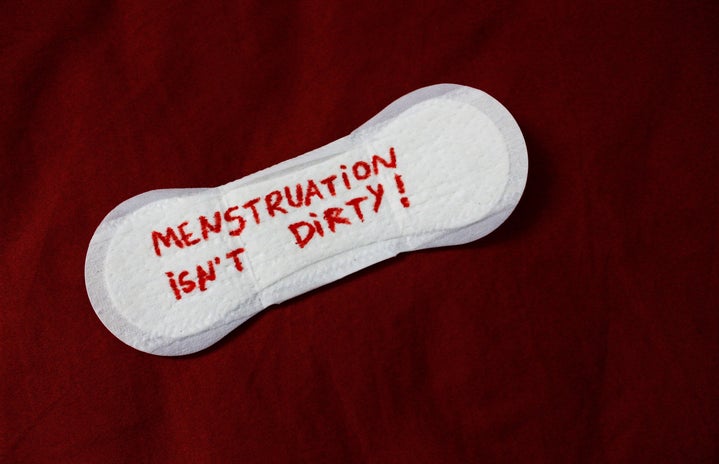Last month, it was reported that the Rajasthan Royals, an Indian Premier League cricket team, had been sponsored by the sanitary pad maker, Niine, and would wear the company’s logo on their sports jerseys. This is a move, they hope, that will support the fight to eradicate the stigma surrounding menstruation in India, one that has plagued the country for years.
Traced back to old Hindu mythology, this stigma can be linked to Indra’s killing of Vritra, documented in the Rig Veda. Ridden with guilt about the killing, Indra asked womankind to take his guilt upon themselves via their period, with their menstrual blood washing away his sin and guilt each month. Such myths have been repeated in multiple historical texts and have provoked an association between menstruation, guilt and sin that has slowly become entrenched into modern-day Indian society.
The resulting taboo has impeded the lives of Indian women for many years. According to a study by Dasra, a charity that works on issues of adolescent health, nearly 23 million girls are forced to drop out of school annually once they start their periods, in part due to a lack of changing facilities and access to sanitary pads. The prominent association between menstrual blood and impurity has also evoked multiple restrictive societal rules including the banning of menstruating women from entering kitchens, temples and other public spaces. Some women are even forced to sleep in ‘menstruation huts’ (often barns and cow sheds).
Whilst these unfair societal rules and their consequences were once passively accepted and obliged, over the years, more and more people have started to fight back. Just earlier this year, it was reported that 68 female students who had been forced to remove their undergarments to prove they were not menstruating (after complaints that they had entered the kitchen whilst on their period) conducted huge protests against their treatment. These girls had previously refused to put their names and the dates of their periods on a mandatory register at the hostel, used to help authorities identify rule-breakers. Niraj Gera, an award winning photographer, is another activist fighting back. He travelled across India for several months to interview women and girls and learn about how the menstrual taboos had affected them. Their stories inspired his photographic series, Sacred Stains, which he used to highlight their voices in the hope that it would contribute to the de-stigmatization of menstruation. Gera’s activism didn’t stop with his series either. He also launched a petition demanding for the free distribution of pads to all women and girls living below the poverty line in India through his charity – the Humanify Foundation. A lack of affordable, accessible sanitary pads is another bi-product of the taboo. Of India’s 350 million menstruating women and girls, only about 8 million use sanitary pads, according to Niine, and according to a country analysis of menstrual health 88 percent of Indian girls and women rely on homemade contraptions during periods, such as old fabric, hay, sand and ash – leaving these women vulnerable to infections.
In fact, this lack of affordable sanitary pads is at the heart of the Netflix documentary, Period. End of Sentence. Using a machine created by Arunachalam Muruganantham (who invented it after discovering his wife used cheap, dirty cloth instead of expensive sanitary pads), the documentary follows a group of women who work, initially in secret, to make and sell affordable sanitary pads. Following the success of the documentary, they have now taken their product to over 20 villages, and another machine has been installed in the nearby village of Sudhna. From the global network of activists, including the Pad Project, who worked to create it, to the women featured in it, this is a documentary that highlights the various groups of people fighting against the menstruation taboo in India. However, the most striking element of it was the shift of attitudes that occurred. Women who were visibly uncomfortable when asked about menstruation at the start of the documentary spoke about it openly towards the end. It is evidence that slowly but surely, attitudes are beginning to change, and with the continued influx of activists defying these taboos, these changing mindsets aren’t going to stop anytime soon.



